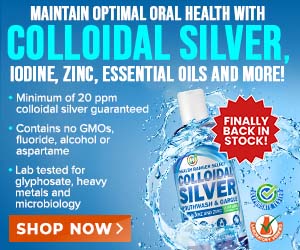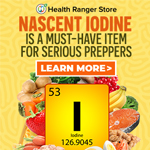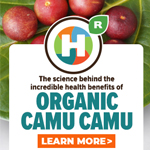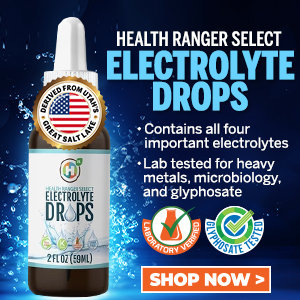A number of skin problems can be improved with the right vitamins
Monday, November 21, 2016 by: Vicki Batts
Tags: vitamins, skin health, nutrition

(NaturalNews) Many people suffer with skin problems. Dark circles, stubborn acne and dry patches are just some of the ailments that can plague your skin – and your life. There are tons of ointments, pastes, creams and serums available to treat these conditions, but oftentimes the problems come right back as soon as treatment ends.
What if these skin problems didn't need miracle potions, but rather nutrition, to be solved? There's a good chance that improving nutrient intake can indeed help to fix these common ailments and restore skin's integrity.
Vitamins are the key to having healthy skin, as they are for any other vital organ. Deficiencies in essential vitamins can, of course, lead to issues with the skin, including acne and other conditions. While all vitamins are important, some are more important to healthy skin. Here are a few of them:
Vitamin A
Vitamin A deficiency can cause skin to appear dull and become flaky. It can even contribute to psoriasis and pimple-formation. Some good sources of vitamin A include carrots, sweet potatoes, raw milk and dark, leafy greens.B Vitamins
There are eight different B vitamins that contribute to the overall health of the body. They help the body to metabolize energy from food. Biotin, or vitamin B7, is known to contribute to the metabolism of amino acids and the synthesis of fat. Biotin deficiency, in particular, can cause pale or grayish-hued skin, dry skin and scaly dermatitis. Vitamin B12 deficiency can also cause dark under-eye circles to form. Dry skin is a common feature of B vitamin deficiency as a whole. Some good sources of B vitamins include mushrooms, whole grains and kidney beans. Egg yolks, peanuts, cauliflower, chicken and liver are good sources of biotin.Vitamin C
Vitamin C deficient skin is more susceptible to the effects of aging, such as wrinkling or the development of hyper-pigmented areas. Vitamin C is essential for collagen synthesis, which is a major component of skin. Scurvy is one of the primary outcomes of vitamin C deficiency, and its dermatological presentation is the result of malformed collagen. Because a lack of vitamin C inevitably weakens the skin, it also becomes more vulnerable to acne-causing bacteria. In this manner, vitamin C deficiency can contribute to issues with acne. The absence of vitamin C also impairs the body and skin's ability to heal the acne. In addition to citrus fruits, peppers and tomatoes are also great choices for vitamin C-rich foods.Vitamin E
Vitamin E is a potent antioxidant nutrient that helps to protect skin from free radicals and toxins. Vitamin E deficiency is fairly rare, but there are several foods you can eat to help ensure you are getting enough. Avocados, leafy vegetables, nuts and seeds are all great options for meeting your vitamin E requirements.Vitamin K
Inadequate intake of vitamin K can contribute to the development of dark under-eye circles. It has also been attributed to more rapid aging in middle-aged adults. Vitamin K deficiency is rare, but eating plenty of leafy greens can help you get enough on a daily basis. Kale, broccoli, cabbage and egg whites are all great ways to get your daily dose of vitamin K.Eating a healthy diet is always important. There are many nutrients that are essential to total body health, but these particular ones can help keep your skin clear, youthful and bright.
Sources:
NaturalBlaze.com
ProgressiveHealth.com
BetterHealth.Vic.gov.au
HealthAmbition.com
Vitamins at FETCH.news
Get independent news alerts on natural cures, food lab tests, cannabis medicine, science, robotics, drones, privacy and more.
Take Action: Support Natural News by linking to this article from your website
Permalink to this article:
Embed article link: (copy HTML code below):
Reprinting this article:
Non-commercial use OK, cite NaturalNews.com with clickable link.
Follow Natural News on Facebook, Twitter, Google Plus, and Pinterest
- Warp Speed 2.0: Trump Administration ACCELERATES Gates-funded, self-amplifying bird flu vaccines
- DMSO and Natural Dyes: A suppressed cancer treatment resurfaces in independent research
- Transhuman vectors of disease: Young adults continue to produce spike proteins ONE YEAR after receiving COVID vaccine
- Chemical cocktails in processed foods linked to diabetes, validating natural health warnings
- Study finds bananas more effective than salt reduction for lowering blood pressure
- 8 U.S. states may EXPAND vaccine exemptions in 2025, and parents have many reasons to STOP THE SHOTS
- Prominent doctors call for new holistic therapies to address CANCER SPIKE: Tree barks provide anti-cancer treatment options
- Aerosolized bioweapons? Strange “diploid biomasses” falling out of the sky in Florida captured under the microscope
- STAGING BEFORE RELEASE: WHO Runs 2-Day Pandemic Simulation 'Exercise Polaris'
- Fermented foods like sauerkraut may outshine modern medicine in gut health, research finds
- Ancient mummies rewrite human history with “ghost” lineage discovery
- Surge in KIDNEY FAILURES linked to common medications
- Fauci is back in the limelight, and he’s busy promoting a future COVID or FLU pandemic
- Mike Adams releases country western hit single: Goin’ Back in Time is Comin’ Home
- Millions of gun owners could be challenged in court and lose their firearms if DOJ doesn’t step in to stop crazy ATF rule
- Analysis: The coming economic collapse, a mass uprising and Trump's three secret weapons to halt the growing revolt
- Widespread social and economic unrest: Steve Quayle issues urgent financial warning of imminent asset collapse in new interview with Mike Adams
- Israeli lobbyists boast of controlling US national security policy in leaked AIPAC audio
- Israeli lobbyists boast of controlling US national security policy in leaked AIPAC audio
- Aerosolized bioweapons? Strange “diploid biomasses” falling out of the sky in Florida captured under the microscope
- Analysis: The coming economic collapse, a mass uprising and Trump's three secret weapons to halt the growing revolt
- Fauci is back in the limelight, and he’s busy promoting a future COVID or FLU pandemic
- Widespread social and economic unrest: Steve Quayle issues urgent financial warning of imminent asset collapse in new interview with Mike Adams
- Kiss Your Genetic Privacy Good-Bye! 23andMe Gets Green Light to Sell Your Intimate Genetic Details to Anyone They Want
- Mike Adams releases country western hit single: Goin’ Back in Time is Comin’ Home
- U.S. lawmakers investigate Meta over alleged China collaboration
- Tulsi Gabbard leads charge against the Biden regime’s global censorship of the 'Disinformation Dozen'
- Pfizer's RSV vaccine linked to preterm births as drug giant CONCEALED RISKS from pregnant women in unethical clinical trials
- Dane Wigington exposes climate engineering as ‘All-Out Weather and Biological Warfare’
- Shedding light on the dark side of MMR vaccines: How vaccinated individuals SPREAD MEASLES & put the vulnerable at risk
- TAKE IT DOWN Act advances in Congress amid free speech concerns
- CLOT SHOT PLANDEMIC UNFOLDING: Fibrous, rubbery clots caused by covid injections have prion-like seeding activity
- Chemtrails unveiled: How the CIA and Big Business are manipulating the weather for profit
- Curcumin’s ancient healing power supercharges muscle recovery, and its effects are compounded with anti-inflammatory foods and supplements
- Criminal referral requests filed against Fauci and top COVID officials in seven states
- Defunding DEADLY mRNA jabs: Government funding for mRNA technology being scrutinized and sidelined until proven "safe and effective" for real
- Newly released JFK files reveal Pentagon's role in creating Lyme disease and covid in the same lab
- Analysis: The coming economic collapse, a mass uprising and Trump's three secret weapons to halt the growing revolt
- Mike Adams releases country western hit single: Goin’ Back in Time is Comin’ Home
- Aerosolized bioweapons? Strange “diploid biomasses” falling out of the sky in Florida captured under the microscope
- Kiss Your Genetic Privacy Good-Bye! 23andMe Gets Green Light to Sell Your Intimate Genetic Details to Anyone They Want
- European Court of Justice: Healthcare professionals who promoted or administered COVID-19 vaccines are CRIMINALLY LIABLE for any harm caused
- Federal employees whine over DOGE's new directive requiring them to do a 5-point summary of weekly accomplishments
- Widespread social and economic unrest: Steve Quayle issues urgent financial warning of imminent asset collapse in new interview with Mike Adams
- U.S. approves new Russian ambassador as diplomatic thaw continues
- Government waste exposed: Hegseth supports Musk’s demand for accountability from federal workers
- Now you can HEAR chemistry: Health Ranger translates molecules into music in stunning video demonstration that will blow your mind (and your ears)
- Fauci is back in the limelight, and he’s busy promoting a future COVID or FLU pandemic
- CLOT SHOT PLANDEMIC UNFOLDING: Fibrous, rubbery clots caused by covid injections have prion-like seeding activity
- I Want My Bailout Money – new song released by Mike Adams
- I Want My Bailout Money – new song and music video released by Mike Adams
- Tulsi Gabbard leads charge against the Biden regime’s global censorship of the 'Disinformation Dozen'
- Trump administration poised to overhaul crypto regulations with new SEC leadership
- The Health Ranger releases “Vaccine Zombie” song and music video, using AI-animated zombies for the music video
- Red Cross issues warning to stop blood plasma donations from vaccinated people
- Scientists confirm: GENIUS brain function can be spontaneously unleashed in humans without any apparent cause
- EPA advisor admits the agency is funneling billions to climate groups ahead of Trump’s return to White House
- HYSSOP: What research reveals about the health benefits of this ancient holy herb
- Two containers with completed ballots fall out of truck in Florida
- Newly released JFK files reveal Pentagon's role in creating Lyme disease and covid in the same lab
- Global leaders unite to clamp down on “misinformation” with UN-backed Cascais Declaration
- Mike Adams releases country western hit single: Goin’ Back in Time is Comin’ Home
- BREAKING: 2025 NDAA authorizes mandatory military draft of WOMEN across America… as Pentagon pursues global NUCLEAR war with both Russia and China at the same time
- Michael Yon warns of a ZIONIST TAKEOVER in Trump’s second administration
- The Health Ranger releases “Vaccine Zombie” song and music video, using AI-animated zombies for the music video
- Ozempic and Wegovy weight loss drugs are injectable LIZARD VENOM PEPTIDES that may unleash a devastating wave of organ failure… side effects align with symptoms of SNAKE BITES
- BOMBSHELL: DNA testing kits are a SCAM to develop ethnic-specific bioweapons
- Israeli soldiers accused of even more torture and abuse in the West Bank
- I Want My Bailout Money – new song released by Mike Adams
- These 13 countries just signed an agreement to engineer a global FAMINE by destroying food supply
- NASA admits that climate change occurs because of changes in Earth’s solar orbit, and NOT because of SUVs and fossil fuels
- RFK Jr. clears key hurdle: Sen. Susan Collins backs controversial HHS nominee, signaling a new era for health policy
Science News & Studies
Medicine News and Information
Food News & Studies
Health News & Studies
Herbs News & Information
Pollution News & Studies
Cancer News & Studies
Climate News & Studies
Survival News & Information
Gear News & Information
News covering technology, stocks, hackers, and more



"Big Tech and mainstream media are constantly trying to silence the independent voices that dare to bring you the truth about toxic food ingredients, dangerous medications and the failed, fraudulent science of the profit-driven medical establishment.
Email is one of the best ways to make sure you stay informed, without the censorship of the tech giants (Google, Apple, Facebook, Twitter, YouTube, etc.). Stay informed and you'll even likely learn information that may help save your own life."
–The Health Ranger, Mike Adams












































